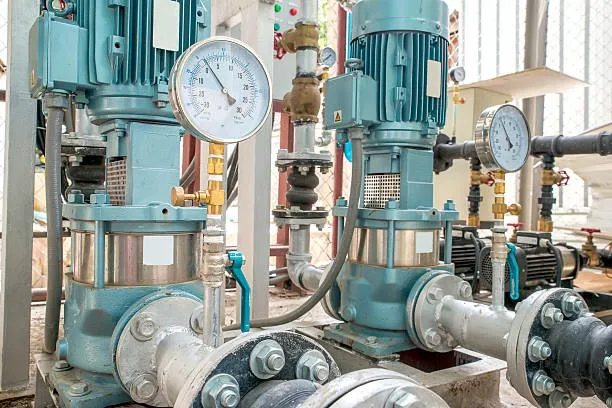
Boiler Installation in Harrisburg, PA
A properly installed boiler delivers reliable warmth, consistent comfort, and long-term energy savings for Harrisburg homes. Whether you’re replacing an aging system or designing a new hydronic heating solution for a historic rowhouse or modern suburban home, a complete boiler installation includes careful assessment, correct equipment selection, professional piping and venting, required permits and inspections, thorough commissioning, and ongoing support.
Common boiler needs and installation drivers in Harrisburg homes
- Aging or inefficient boilers that raise heating bills during cold central Pennsylvania winters
- Uneven heat in multi-story or historically constructed homes with radiator systems
- Conversion from oil to natural gas or propane where local fuel availability or utility incentives make sense
- Switching to high-efficiency condensing boilers to improve comfort and reduce operating costs
- Adding zoning or modern controls to improve comfort and lower energy use in larger houses
Harrisburg’s climate—with long, cold winters and older housing stock in parts of the city—makes correct sizing and piping especially important. Many homes still use radiator or baseboard systems that require careful compatibility checks when installing modern condensing equipment.
Initial home assessment and heat load calculations
A professional installation begins with an on-site assessment and precise heat load calculation (not a rule-of-thumb sizing). Key tasks include:
- Inspecting existing distribution (radiators, baseboards, radiant floors) and insulation levels
- Measuring building envelope characteristics: windows, doors, wall and attic insulation, and air infiltration
- Calculating heat loss for each zone or room to determine the correct boiler capacity and whether zoning is needed
Accurate load calculations prevent oversizing (short cycling, higher costs) and undersizing (insufficient heat). For Harrisburg homes, assess older single-pane windows, stone or brick walls, and basements that often affect heat loss.
Recommended equipment and sizing considerations
- Choose a boiler type that matches home needs: high-efficiency condensing gas or propane boilers are commonly recommended for Harrisburg homes for their fuel efficiency and lower emissions; oil-to-gas conversions are frequent in older neighborhoods.
- Prefer modulating/condensing units when possible; they adjust firing rate to match demand and maximize efficiency in mild and severe weather.
- Size based on total calculated heat loss plus distribution system characteristics. A boiler manufacturer’s output rating must match the home’s net heating requirements.
- Consider system components: properly sized expansion tank, circulator pumps (or variable-speed ECM pumps), a buffer tank for low-load situations, and appropriate controls for zoning and outdoor reset.
Professional installation steps: venting, piping, controls and more
A methodical installation sequence ensures safety and performance:
- Site preparation and removal of the old unit, including safe disposal of fuel lines and old tanks if applicable.
- Venting and combustion air: design and install manufacturer-approved venting or chimney adapters; ensure adequate combustion air per code. For condensing boilers, include proper condensate drainage and corrosion-resistant venting materials.
- Hydronic piping and connections: install supply/return piping with correct slope and isolation valves; include air separation, fill/pressure-reduction valves, and a properly sized expansion tank.
- Fuel connections: certified gas or oil plumbing and leak testing following local fuel codes.
- Controls and zoning: install boilers’ control boards, zone valves or multiple circulators, outdoor reset sensors, and compatible thermostats for each zone to optimize comfort and efficiency.
- Safety systems: pressure relief valves, low-water cutoff, backflow preventers, and carbon monoxide considerations for combustion systems.
- Insulation and final routing: insulate piping to reduce heat loss in basements or crawl spaces.
Permits and inspections
Boiler installations in Harrisburg require permits and inspections to meet municipal and state codes. Typical requirements:
- Building and mechanical permits from Harrisburg city or Dauphin County where applicable
- Gas, oil, or plumbing permits for fuel connections and condensate drainage
- Final inspections and sign-offs from local inspectors confirming venting, combustion safety, piping integrity, and adherence to manufacturer installation instructions
Licensed technicians ensure permits are pulled and inspections scheduled—skipping permits risks failed inspections and safety liabilities.
Commissioning and performance testing
Commissioning verifies the system operates safely and efficiently before leaving the job:
- Combustion analysis to confirm proper air/fuel ratio and safe flue conditions (CO levels within acceptable limits)
- Pressure and leak tests for piping and fuel lines
- System flushing, balancing, and air removal to prevent cold spots and noise
- Verification of control logic: thermostats, zone sequencing, outdoor reset and pump operation
- Measurement of operating temperatures, return temperatures (important for condensing boilers), and overall system responsiveness
Documented commissioning ensures the boiler meets efficiency expectations and prevents early failures.
Post-installation support and warranties
Professional installations include detailed documentation of installed equipment, warranty coverage on parts and labor, and startup records. Typical elements:
- Manufacturer’s parts warranty and any additional labor warranty from the installing contractor
- Recommended maintenance schedule and optional service plans for annual tune-ups and priority service
- Emergency support options and guidance on what to monitor between services (pressure, abnormal noises, visible leaks)
Make sure warranty conditions are met by following recommended maintenance intervals and using certified service technicians for repairs.
Maintenance tips to ensure longevity
Regular upkeep keeps a boiler safe and efficient:
- Annual professional inspection and tune-up before the heating season, including combustion checks and system flushing if needed
- Monitor system pressure and bleeder valves on radiators or baseboards; keep a consistent fill pressure as specified on the equipment tag
- Maintain water quality: treat the system if corrosion or mineral buildup is present, especially in older systems with open expansion tanks
- Keep venting and combustion air openings clear of obstructions and stored items
- Install and test carbon monoxide detectors on each level for any combustion appliance
- Consider a proactive maintenance plan for reduced downtime and extended equipment life


Enjoy flexible financing options that make upgrading or repairing your HVAC system easy and budget-friendly.










